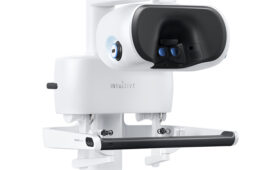
[Image courtesy of Alan Kotok on Flickr per creative commons license]
Of particular concern was that the device claims might require changes to chargemasters, the system hospitals use to bill for services. However, the report notes that can be done without incorporating this information in the chargemaster, a system that hospitals use to determine how much to bill for services. Some hospitals had feared that incorporating device identifiers in claims could require changes to chargemasters.
Ben Moscovitch, who manages health information technology at The Pew Charitable Trusts, noted that negotiating the field in the claim form had some challenges.
Researchers used a “notes” field to mark the UDI in the claim form but found that there were various ways the users could mark the field. For example, users could write in “UDI”, followed by the device identifier number or “UD” or the word “device” with a colon or dash, or other marking characteristic, followed by the device number. Further, hospitals might decide on a standard marking, but an insurance firm might have a different standard.
Earlier this year, X12, the organization that establishes standards for claims transactions, recommended adding device identifiers to insurance claim forms. X12 is seeking public comment on the proposal, which would require federal regulations by the Centers for Medicare & Medicaid Services (CMS) to take effect. The proposal is supported by the CMS, the Food and Drug Administration, and members of both political parties, including Sens. Chuck Grassley (R-Iowa) and Elizabeth Warren (D-Mass.), and Rep. Bill Pascrell (D-N.J.).
Part of the x12 committee’s advocacy is the development of a nationwide standard and a dedicated field on insurance claims. The current recommendation from x12 members is to have a single field that can include either explanted or implanted device identifiers with a flag to make implanted devices. Moscovitch said that will prevent hospitals and insurance firms from having to argue over how it would look. Further, it would facilitate aggregation of device data across systems to ensure safety and measure efficacy.
The Brigham and Women’s Hospital project was partially supported through a proPatient-Centered Outcomes Research Institute (PCORI) Award, and Pew provided a grant for the development of the whitepaper.
[Want to stay more on top of MDO content? Subscribe to our weekly e-newsletter.]







